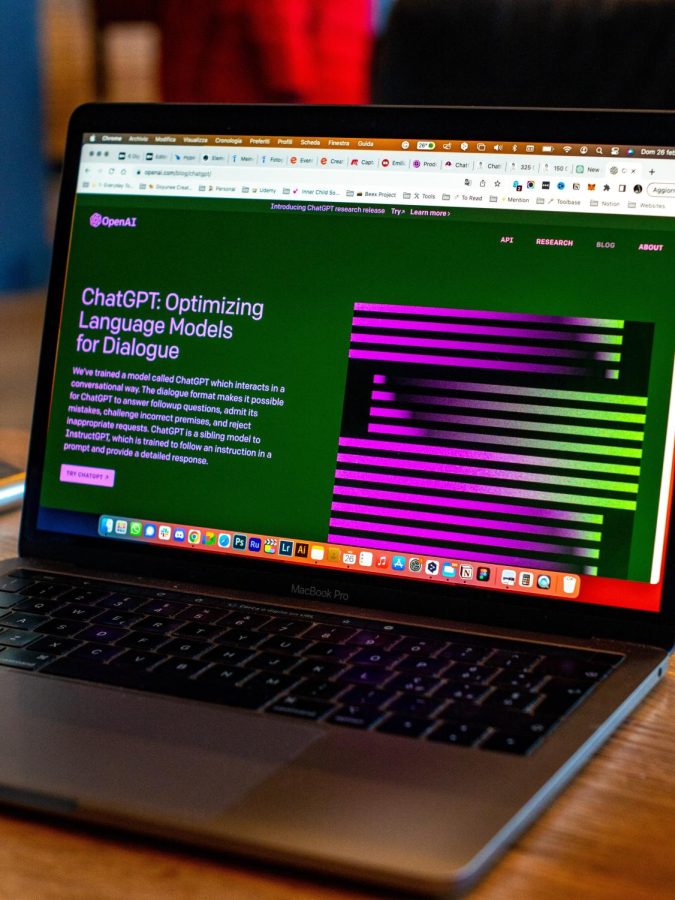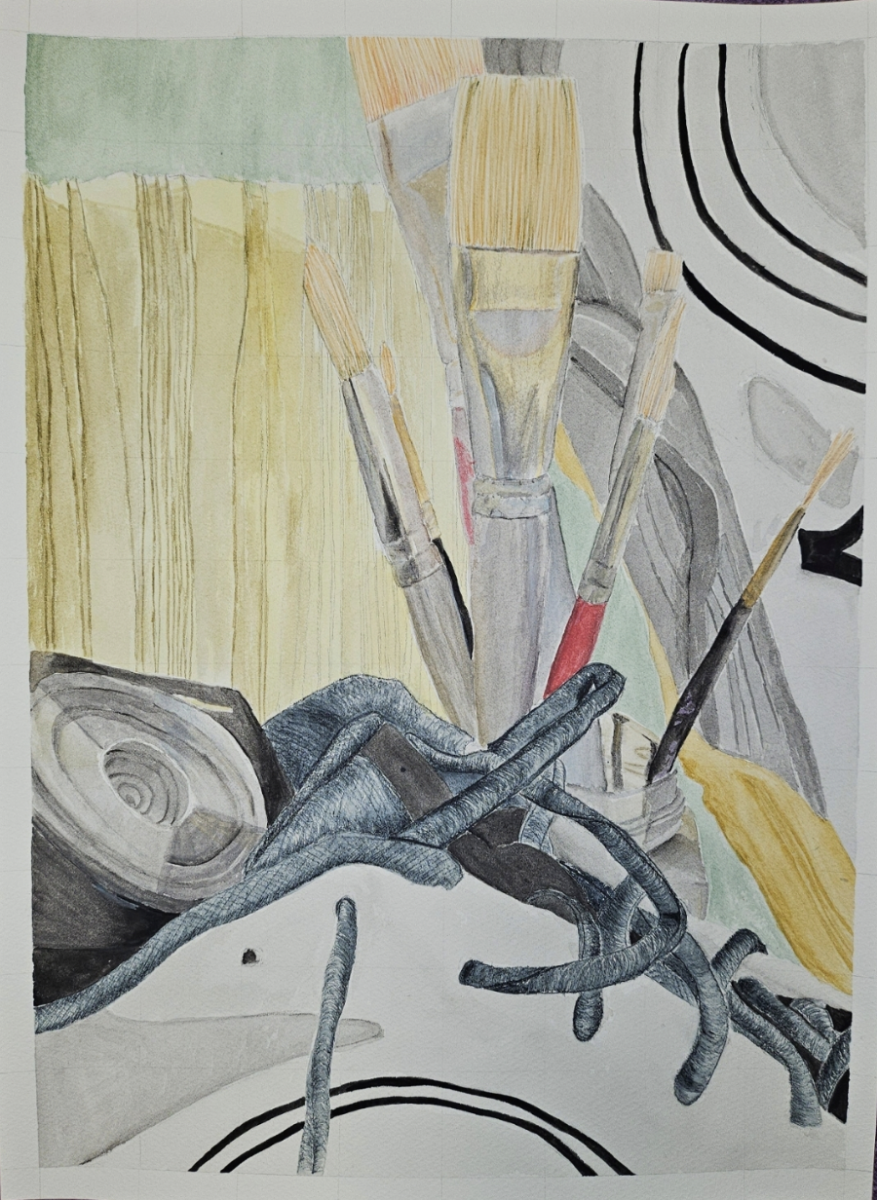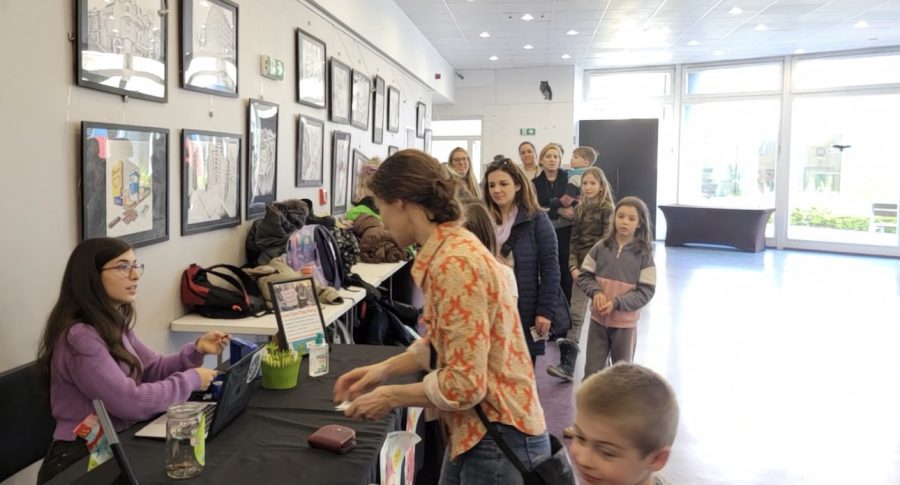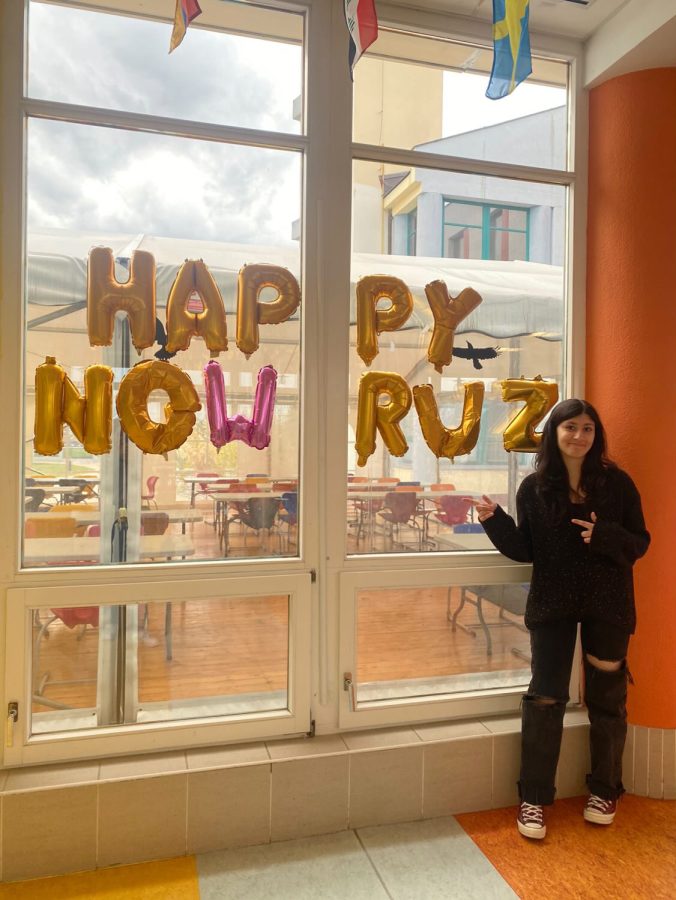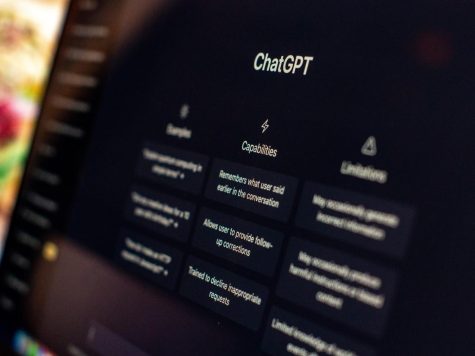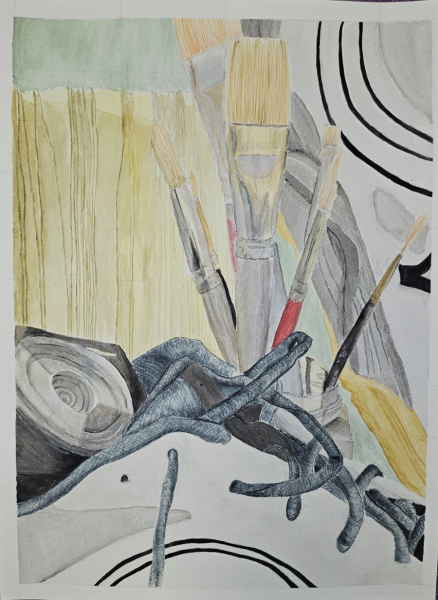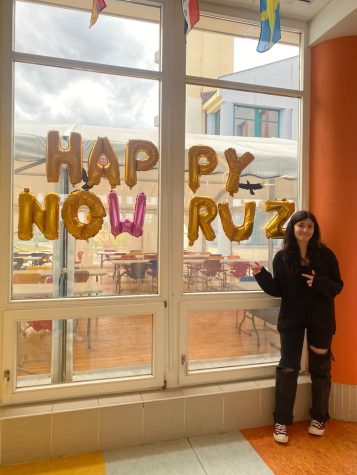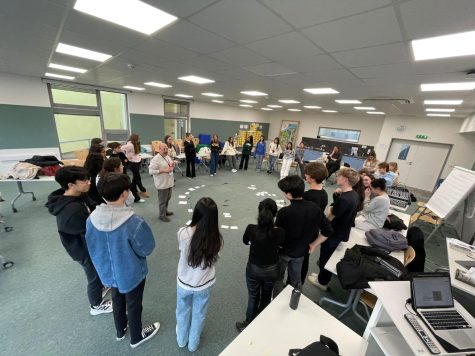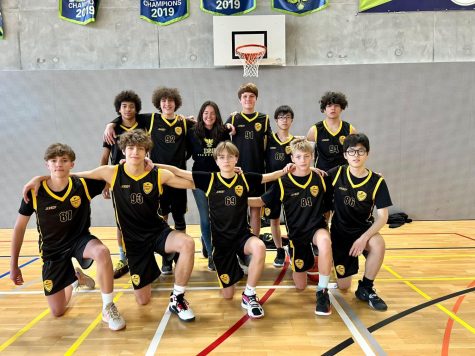One Teacher’s Perspective on AI in the Classroom
Ms. Cox, an English teacher for Grade 9 and IB Diploma students, speaks on the topic of AI.
March 13, 2023
New inventions and discoveries have taken the world by storm over the past decades. However, it is without a doubt that certain new technology is taking becoming increasingly popular in a very controversial way; AI. This article will talk about one teacher’s viewpoint on the benefits and drawbacks of AI, as well as personal experiences with it.
The educational system has been faced with this new technology and it is not necessarily sure how to go about it. Some people believe that it should be banned, whereas others believe the latter. But most people aren’t aware of the fact that many tools are considered AI. When I asked Ms. Cox what AI tools she uses regularly, she said: “I don’t know whether or not all the tools I use are considered AI” which lead her to ask me what is considered AI. And the answer is: Any paraphrasing tool, citation generator, grammar checker, and so much more. This shows that AI is all around us.
AI can be used for many different things. It can create art digitally, create poems, paraphrase/summarize texts, analyze texts, solve math problems, and much more. In the list above, you might have noticed a common thread when it came to a certain subject; English. It has been argued that English teachers will have to look out the most in the future for students using AI. When I asked Ms.Cox her opinion on this she said: “The danger I think is not just about plagiarism, it’s the danger of having the one size fits all.” When I asked her to elaborate on this, she explained to me that AI can take away a person’s style of writing, since they won’t be putting their thought process, feelings, or opinions into their piece. She said one of her main goals as an English teacher is to help students explore their style of writing (since not one person’s writing is identical to another), and how to properly express their opinions, which, she fears, AI can ultimately damage.
When it comes to IB, not only do you have to know your style of writing but so does the teacher. Since Diploma is a two-year course, most students have the same teacher more than once in their final years of high school. Many IB students frequently go through assessments in the form of free writes on paper. When this happens, you do not have access to a computer, meaning all your writing comes from you and your thoughts. So when it comes time to write an essay on your computer, you might use AI to help out. But that means the style of writing is different. This is why Ms. Cox said: “There are alarm bells that go off very quickly” since the teachers will pick up if your style of writing has changed.
The conversation then flowed to another topic: Laziness and shortcuts. When we got on this topic, Ms. Cox made one thing very clear: Not all people use AI because they are lazy. She said: “Shortcuts can come from students under severe pressure, and I’m not excusing it, but some families are very traditional about getting a certain grade.” She explained to me how she has seen students turn to AI when they don’t know how to achieve what is expected of them. She did admit that some students are just lazy. But she also said that claiming AI is used purely out of laziness only scratches the surface of why it is so popular.
It is argued that AI tools have some benefits, and can be used as a possible tool for teachers. When I asked for Ms. Cox’s opinion on this she said it came down to a couple of important components: Time and monetization.
For the time component, she is unsure of “how much time will I have to understand and train myself to use it, as well as how much time will I have to learn from other teachers.” She explained her belief that a tool is useless, if not used properly, which takes time. She also was cognizant of the fact that “Tech moves fast.” She is worried that as soon as we feel we have mastered the use of a certain tech, there will be an update that can throw us off.
For the monetization component, she does believe that “It will be monetized more than it was actually intended to be.” Ms. Cox expressed to me that if it’s monetized, she is unaware of how much money ISP, and other IB schools, will be willing to put into it. Since there are already several useful tools that students have access to in order to succeed academically.
Once the interview was slowly coming to an end, I decided to put Ms. Cox through a small test. The test was to see if she could tell the difference between a question I wrote about AI, and a question ChatGPT wrote about AI. My question was: Do you think in the future, teachers have the possibility of being replaced by AI tools? ChatGPT’s question was: Can AI help to eliminate bias in the grading and assessment process? After a bit of consideration, Ms. Cox correctly identified which one was mine. When I asked her how she knew, she said “It might be because I know you as a student, but you seem to be interested in my opinion, whereas the question from the AI sounds quite neutral.” This small test does prove that AI can be knowledgeable and good, but it can’t account for people’s opinions or beliefs on something.
When I asked Ms. Cox about her feelings surrounding AI, she said she had many. So I asked a unique question: Describe AI with three adjectives. Her response was “Intriguing, unnerving, and [even though it’s not an adjective] potential.” She elaborated by saying it’s intriguing because there is so much we don’t know, it’s unnerving for the same reason, and it has potential for the same reason.
So, in conclusion, different teachers have their own opinions and experiences with AI. And no one exactly knows how far new technologies (not just AI) will go. But as Ms. Cox said: “As far as AI goes, I think this is going to be the future.”
